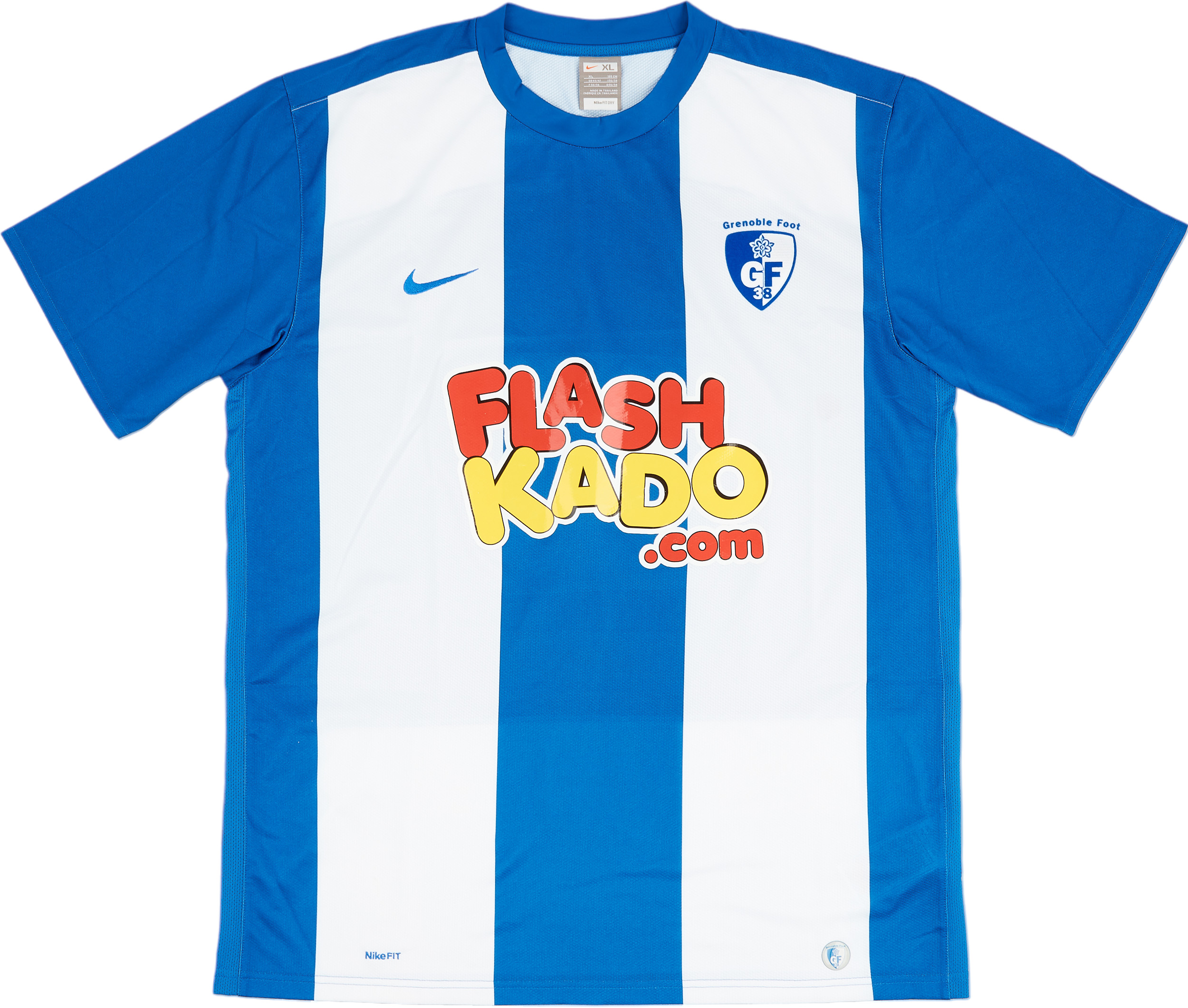Grenoble Foot
Introduction Grenoble Foot 38, commonly known as Grenoble Foot, is a football club based in the picturesque city of Grenoble in the Auvergne-Rhône-Alpes region of France. The club, often referred to simply as GF38, holds a unique place in French football, recognized for its passionate fanbase and rich sporting culture. With a history that dates […]
1999-00 Grenoble Foot Home L/S Shirt - 8/10 - (M)
118.99£ - ca: €140
2009-10 Grenoble Foot Home Shirt (XXL)
82.99£ - ca: €98
2009-10 Grenoble Foot Home Shirt (XL)
82.99£ - ca: €98
2009-10 Grenoble Foot Home L/S Shirt - 9/10 - (M)
70.99£ - ca: €84
2009-10 Grenoble Foot Third Shirt (L)
70.99£ - ca: €84
2009-10 Grenoble Foot Home Shirt - 9/10 - (XL)
53.99£ - ca: €64
2009-10 Grenoble Foot Away Shirt - 7/10 - (M)
41.99£ - ca: €50
Introduction
Grenoble Foot 38, commonly known as Grenoble Foot, is a football club based in the picturesque city of Grenoble in the Auvergne-Rhône-Alpes region of France. The club, often referred to simply as GF38, holds a unique place in French football, recognized for its passionate fanbase and rich sporting culture. With a history that dates back to 1892, Grenoble Foot embodies the spirit of its local community while striving for excellence on the pitch.
Club History
Grenoble Foot was originally founded in 1892 as the “Football Club de Grenoble.” Over the decades, the club underwent numerous transformations, including several name changes and mergers. In 1997, the club adopted the name “Grenoble Foot 38,” signifying its standing within French football and its identity as a professional entity. The club’s early days saw it compete in regional leagues, gradually making its way through the ranks of French football.
A significant turning point in the club’s history came in the late 1950s when Grenoble Foot achieved promotion to Ligue 1, the top tier of French football. This marked the beginning of a new era for the club, which continued to find its footing in the elite ranks of French football throughout the following decades. However, the early 21st century brought about challenges, including relegation to lower divisions, but the club has shown resilience in bouncing back through determination and effort.
Achievements
Grenoble Foot’s notable achievements primarily revolve around its performances in various leagues. The club’s most significant accomplishment came when it won Ligue 2 in the 2008-2009 season, securing promotion to Ligue 1. This triumph remains etched in the memories of fans as a defining moment in their club’s history.
In addition to its league successes, Grenoble Foot has also made its mark in domestic cup competitions. The club reached the semi-finals of the Coupe de France in the 1984-1985 season, ultimately falling short but showcasing their competitive spirit. Throughout its history, Grenoble Foot has maintained a reputation as a club that is capable of challenging larger teams, giving rise to a slew of memorable matches against top-tier opponents.
Significant Players and Matches
Over the years, Grenoble Foot has nurtured and showcased many talented players who have contributed significantly to the club’s success. Among these standout players is Joseph-Antoine Bell, a legendary goalkeeper who had a brief yet impactful spell in the 1980s. His exemplary shot-stopping abilities helped shape the defensive strength of the team during a competitive era.
Another notable figure is striker Benjamin Nivet, who played a crucial role in the club’s promotion to Ligue 1 during the 2008-2009 campaign. His adept goal-scoring and playmaking abilities made him a fan favorite and a key component of the team’s attacking strategy.
Significant matches, such as the iconic encounters against rivals like Olympique Lyonnais, have often been described as electrifying events, drawing large crowds and intense atmospheres. The 2008 win against Lyon in the Coupe de la Ligue was particularly memorable, highlighting the potential of Grenoble Foot to compete against France’s elite clubs.
Cultural Impact
Grenoble Foot holds a special place in the hearts of its local community. The club’s matches, held at the Stade des Alpes, serve as a gathering place for fans of all ages, fostering a sense of belonging and identity among supporters. With a loyal following, the club helps to unite the diverse population of Grenoble, providing entertainment and joy to thousands.
Furthermore, the club engages with its fans through various initiatives and outreach programs that promote football within the community. Schools and local organizations frequently partner with Grenoble Foot to establish youth programs, nurturing the next generation of football talent and cultivating a love for the sport among young players. The fan experience is enriched through various fan-driven events, forging a strong bond between the club and its supporters.
Conclusion
Grenoble Foot 38 encapsulates the essence of regional football in France. With a proud history, a resilience to adapt and overcome challenges, and significant achievements etched into its narrative, the club continues to thrive in the competitive landscape of French football. As it looks to the future, Grenoble Foot remains a beacon of hope for aspiring players and devoted fans alike, embodying the passion and spirit that define the beautiful game.






